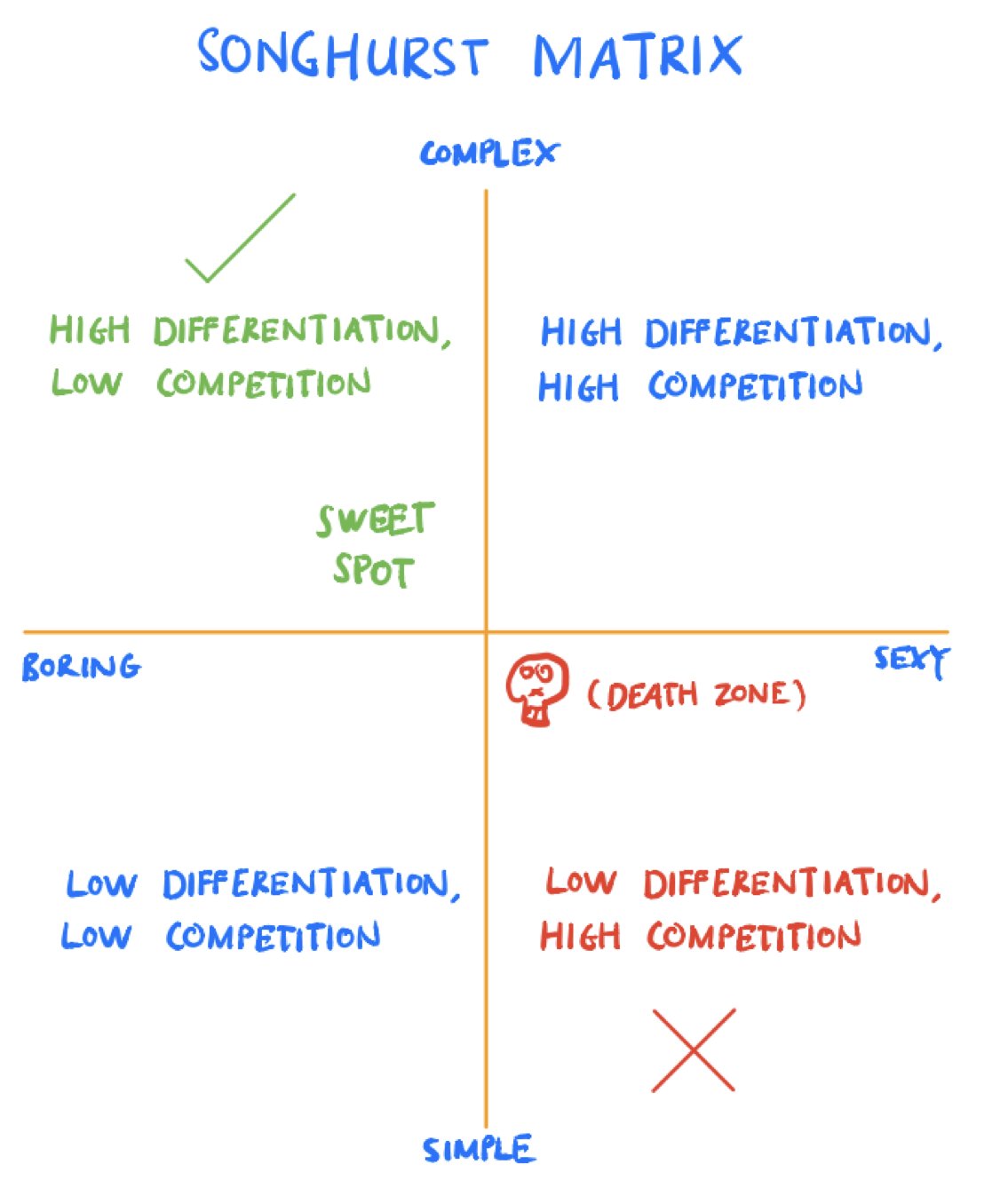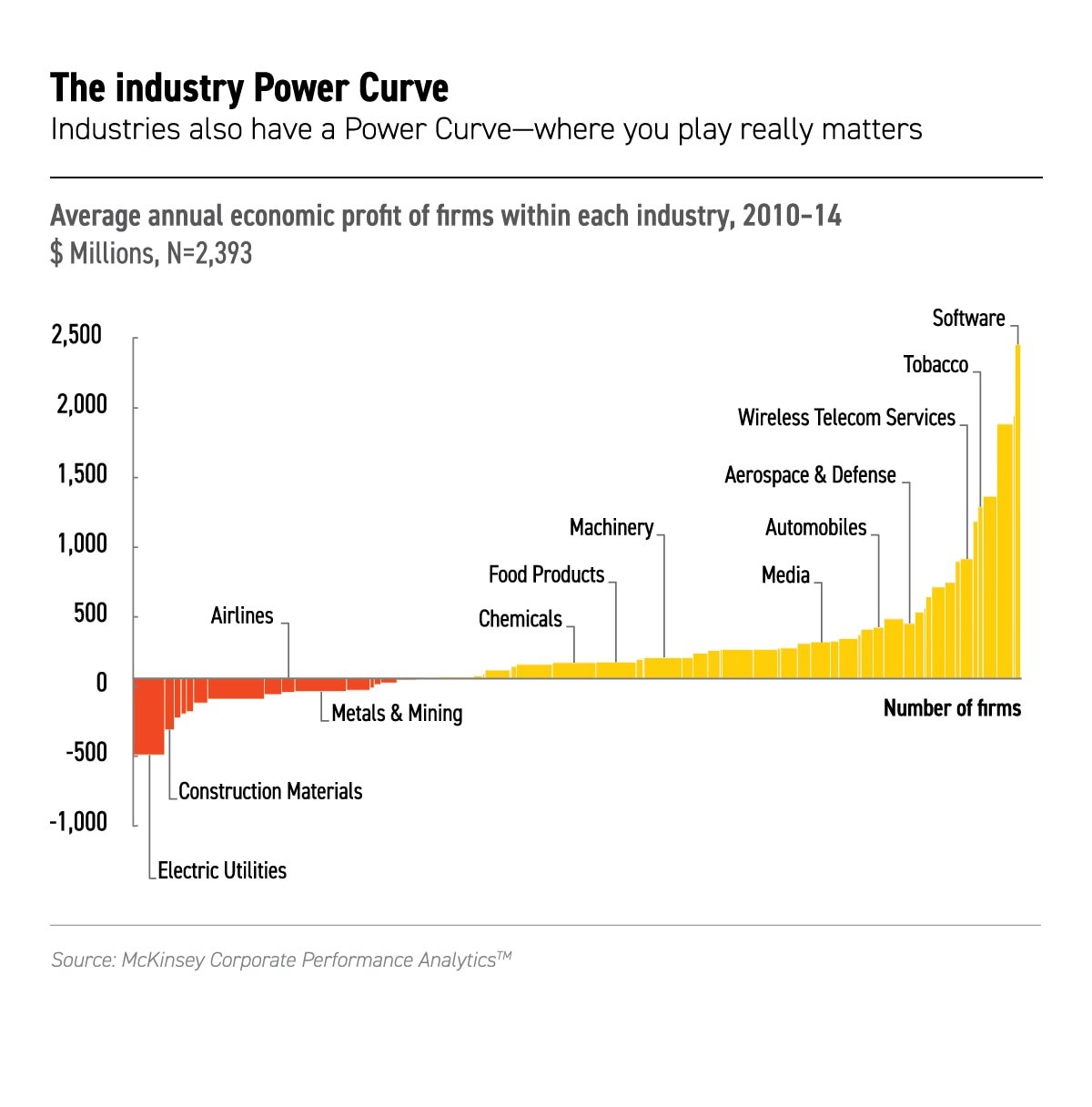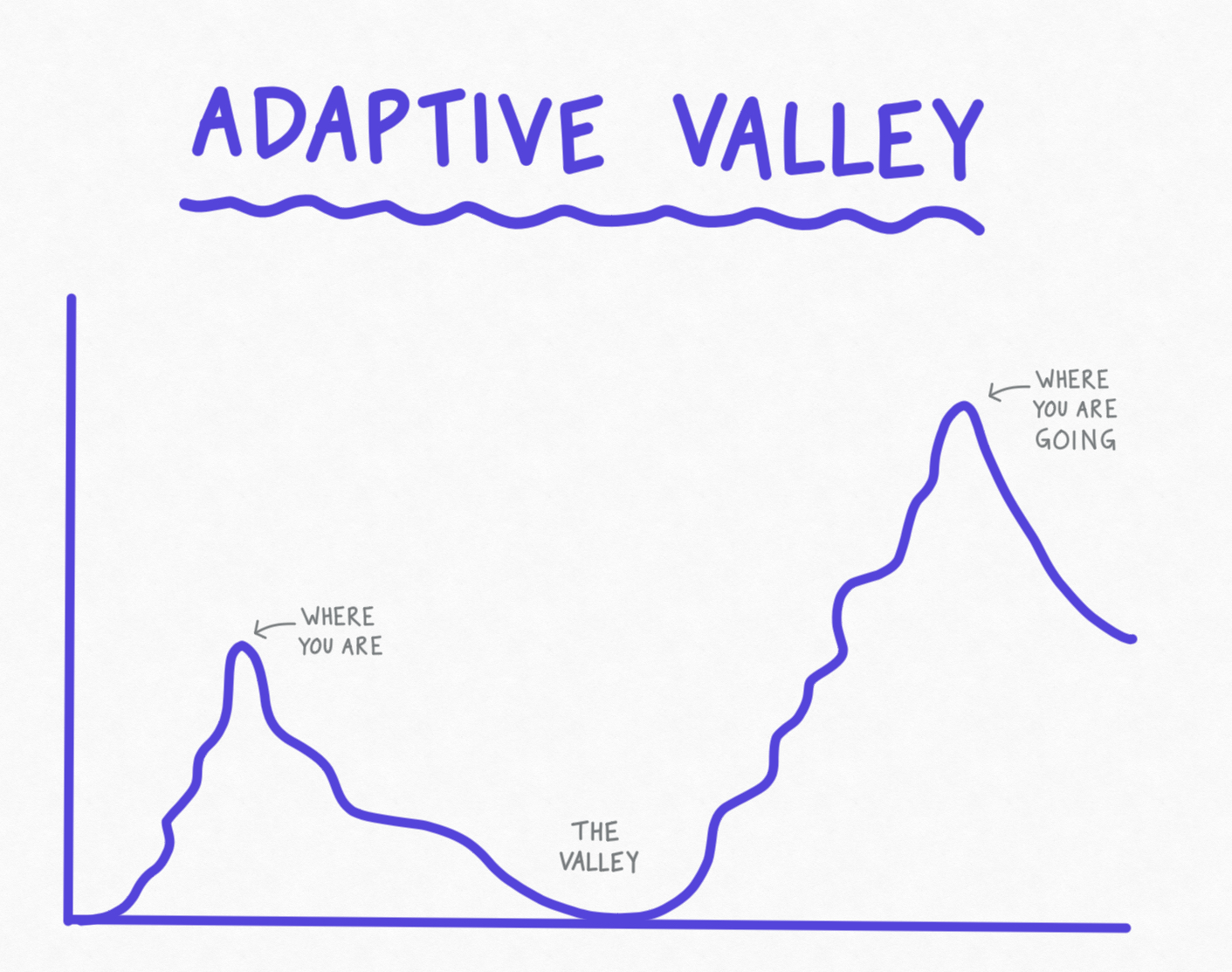Thread
My favorite business frameworks:
Strong Culture, Fewer Rules
When a culture is tight-knit, people don't need to be told what to do explicitly. They just copy what everybody else does, which allows them to be entrepreneurial.
But weak cultures need many precise rules to keep people in check.
(Source: Airbnb)
When a culture is tight-knit, people don't need to be told what to do explicitly. They just copy what everybody else does, which allows them to be entrepreneurial.
But weak cultures need many precise rules to keep people in check.
(Source: Airbnb)
Christensen's Disruptive Innovation Framework
Innovators win market share when they serve a segment of the market that is over-served by incumbents.
Startups offer the exact level of product or service they need and use this wedge to expand market share.
(Source: @SahilBloom)
Innovators win market share when they serve a segment of the market that is over-served by incumbents.
Startups offer the exact level of product or service they need and use this wedge to expand market share.
(Source: @SahilBloom)
The Boring-Sexy Matrix
If you want to start a highly profitable company, build highly differentiated products in markets without a lot of competition.
These products will tend to be boring, complex, and outside the media spotlight.
(Source: Charlie Songhurst)
If you want to start a highly profitable company, build highly differentiated products in markets without a lot of competition.
These products will tend to be boring, complex, and outside the media spotlight.
(Source: Charlie Songhurst)
Be an Arms Dealer
In a market craze with low barriers to entry and tons of participants, don't pick winners.
Be an arms dealer instead.
Some examples:
1) Sell pickaxes in a gold rush.
2) Sell wine barrels instead of wine.
(Source: @wolfejosh)
In a market craze with low barriers to entry and tons of participants, don't pick winners.
Be an arms dealer instead.
Some examples:
1) Sell pickaxes in a gold rush.
2) Sell wine barrels instead of wine.
(Source: @wolfejosh)
Industry Matters
Small tweaks in positioning can have a large influence on profitability.
Say you want to play racket sports. If you want cash, choose tennis. A top-10 tennis player earns 10-20x more than a top 10 player in any other racket sport.
In business, choose software.
Small tweaks in positioning can have a large influence on profitability.
Say you want to play racket sports. If you want cash, choose tennis. A top-10 tennis player earns 10-20x more than a top 10 player in any other racket sport.
In business, choose software.
Find your Secret
Peter Thiel says that great companies are a conspiracy to change the world.
They're built on a secret that other people don't yet understand. That secret unites people and creates a passionate and productive mission-driven culture.
Peter Thiel says that great companies are a conspiracy to change the world.
They're built on a secret that other people don't yet understand. That secret unites people and creates a passionate and productive mission-driven culture.
Build a Static Business
To reduce risk, don't let any customer take up a huge portion of your revenue. It's better to have a bunch of customers who pay roughly the same amount.
Done right, your customer revenue split will look like television static.
(Source: @JasonFried)
To reduce risk, don't let any customer take up a huge portion of your revenue. It's better to have a bunch of customers who pay roughly the same amount.
Done right, your customer revenue split will look like television static.
(Source: @JasonFried)
Crossing the Adaptive Valley
When we make big changes in life, things often become worse in the short term.
Even if the mountaintop we're moving towards is higher than where we're standing, we often need to walk downhill in order to get there.
(Source: @EricRWeinstein)
When we make big changes in life, things often become worse in the short term.
Even if the mountaintop we're moving towards is higher than where we're standing, we often need to walk downhill in order to get there.
(Source: @EricRWeinstein)
Table Selection
This idea comes from poker. Choose your opponents carefully and don’t compete against the best people.
You don’t need to get good at doing difficult things if get good at avoiding difficult things in the first place.
So if you want to win, pick an easy table.
This idea comes from poker. Choose your opponents carefully and don’t compete against the best people.
You don’t need to get good at doing difficult things if get good at avoiding difficult things in the first place.
So if you want to win, pick an easy table.
Billboarding
A term for when the use of your product doubles as an advertisement.
Some examples:
1) Merchandise: People promote their favorite things.
2) "Sent from my iPhone" in an email signature.
3) Calendly: Sharing a link grows brand awareness.
(Source: @Julian)
A term for when the use of your product doubles as an advertisement.
Some examples:
1) Merchandise: People promote their favorite things.
2) "Sent from my iPhone" in an email signature.
3) Calendly: Sharing a link grows brand awareness.
(Source: @Julian)
Work Backwards
When developing new products at Amazon, Bezos tells people to start by writing a press release.
They ask questions like:
∙ What problem do we want to solve?
∙ Why is this product better?
∙ How can we tell our story?
Then they work backwards to a solution.
When developing new products at Amazon, Bezos tells people to start by writing a press release.
They ask questions like:
∙ What problem do we want to solve?
∙ Why is this product better?
∙ How can we tell our story?
Then they work backwards to a solution.
The Knife Theory of Hiring
When you first start a company, you need Swiss Army Knife people who can do a little bit of everything. Once your company gets big, you need a bunch of kitchen knife people who do one thing very, very well.
When you first start a company, you need Swiss Army Knife people who can do a little bit of everything. Once your company gets big, you need a bunch of kitchen knife people who do one thing very, very well.
If you liked this thread, you’ll also like my weekly newsletter where I share ideas like this every week.
Sign up below.
perell.com/newsletter/
Sign up below.
perell.com/newsletter/
Mentions
See All
Sahil Bloom @SahilBloom
·
Feb 2, 2022
Great thread!




